Corpus Christi Blog

Grace
01-30-2022Weekly ReflectionJen Arnold, M.A. in Theology and CatecheticsGrace is a word we hear a lot of in the context of our Christian faith. We know that God bestows His grace on us and we often ask for just that. However, sometimes it may seem to be an abstract concept. Most Christian religions all agree that “Grace is favor, the free and underserved help that God gives us to respond to his call to become children of God, adoptive sons, partakers of the divine nature and of eternal life” (CCC #1996). In other words, being the sinners that we are, we do not deserve or somehow earn God’s favor and help, rather, it is something He gives to us simply because He wants to help us on our path to salvation. While most of us do agree that grace is a free gift of help from God, the Catholic faith has a much deeper understanding of grace, even going so far as to identify different types of grace. Let’s examine what the Magisterium teaches us about grace.
READ MORE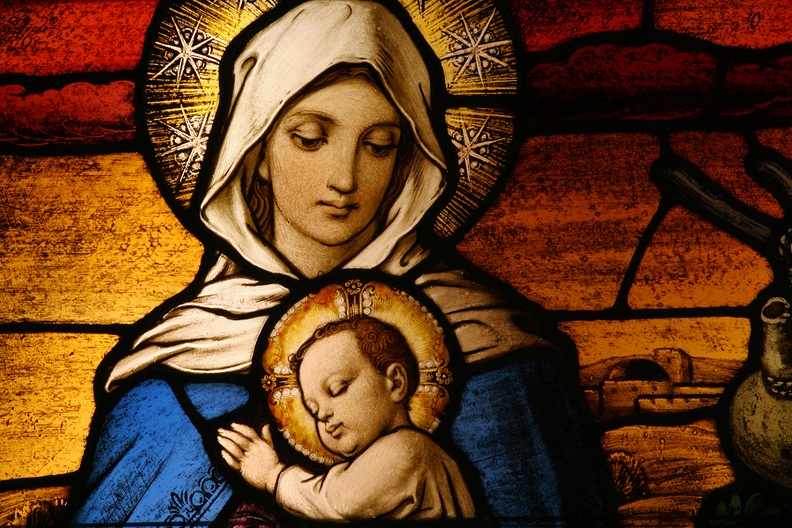
The Word "Until"
01-23-2022Weekly ReflectionJen Arnold, M.A. in Theology and CatecheticsThe Catholic Church teaches that our Blessed Mother, Mary, was a perpetual virgin, meaning she was a virgin when she conceived Jesus, but also remained one after His birth. There is a scripture verse that is very commonly used to argue against this particular teaching which reads: “When Joseph woke from sleep, he did as the angel of the Lord commanded him; he took his wife, but knew her not until she had given birth to a son. And he called his name Jesus” (Matt 1:24-25). The premise of the argument is that the word until suggests that there is a change in status after an event. Today, we’ll do some apologetics and unpack why this is not necessarily true.
READ MORERenovation Update #6
01-21-2022RenovationWe had hoped to begin construction this month, but we are not quite ready to start yet. We continue to make progress, albeit slower than we all would prefer! The health department rejected our initial kitchen plans and provided comments that need to be addressed. Our architect has brought on a food service consultant to assist with necessary changes. We expect to have the new design changes submitted back to the city by mid-February. Our architect is confident that our kitchen permit will be approved with this second submission. Unfortunately, things are taking longer than usual with the city right now. Thank you for your patience and, as always, please pray for this project and for all those involved in ensuring its success. Thank you!
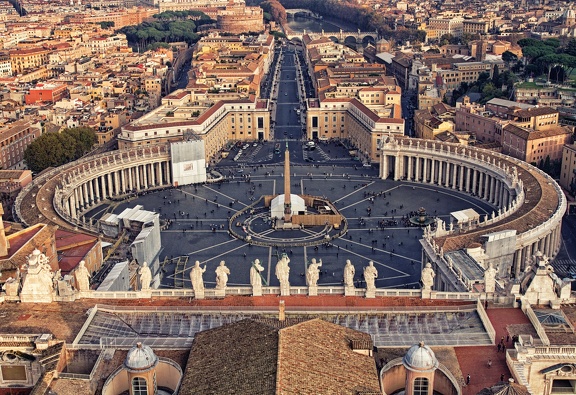
The Hierarchy of the Church
01-16-2022Weekly ReflectionJen Arnold, M.A. in Theology and CatecheticsYou’ve probably noticed that the Catholic Church has a great deal of structure to it, particularly when compared to other Christian denominations. Contrary to popular modern social structures, the Church has a hierarchical order to it. Let’s take a look at why we have a hierarchy and how it serves our greater good.
READ MORE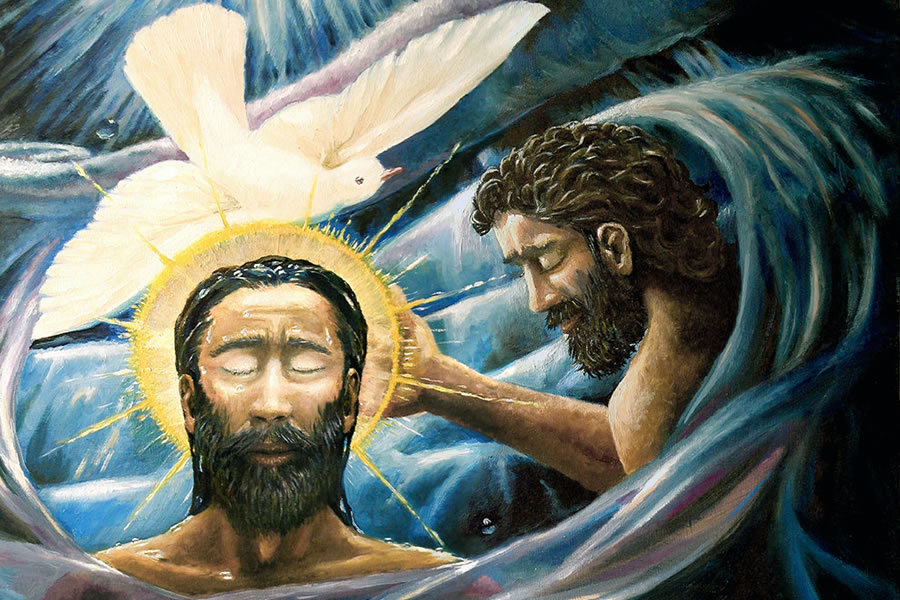
Saint John the Baptist
01-09-2022Weekly ReflectionJen Arnold, M.A. in Theology and CatecheticsToday the Church celebrates the Baptism of Jesus. Baptism is the first Sacrament of Initiation by which we enter the Church and become an adopted child of God. Jesus, who did not need to be baptized, did so as an example for us to follow. While most of us are familiar with the concept of Baptism, how much do we think about John the Baptist and what his role in the life of Christ means for us? At every Mass, the priest speaks the words of the Baptist when he says, “Behold the Lamb of God who takes away the sins of the world.” This reinforces just how significant a figure John is in our salvation history.
READ MORE
The Rosary
01-02-2022Weekly ReflectionJen Arnold, M.A. in Theology and CatecheticsWe begin each year with the Solemnity of Mary, the Holy Mother of God. (It was not a holy day of obligation this year since it fell on a Saturday.) As Catholics, we hold Mary in very high regard and we are all called to a particular devotion to her. One of the most important devotions to Mary is the Rosary. It provides a way for us to walk through the life and miracles of Jesus’ life, honoring Mary for her devotion to God and her faithful motherhood of Christ.
READ MORE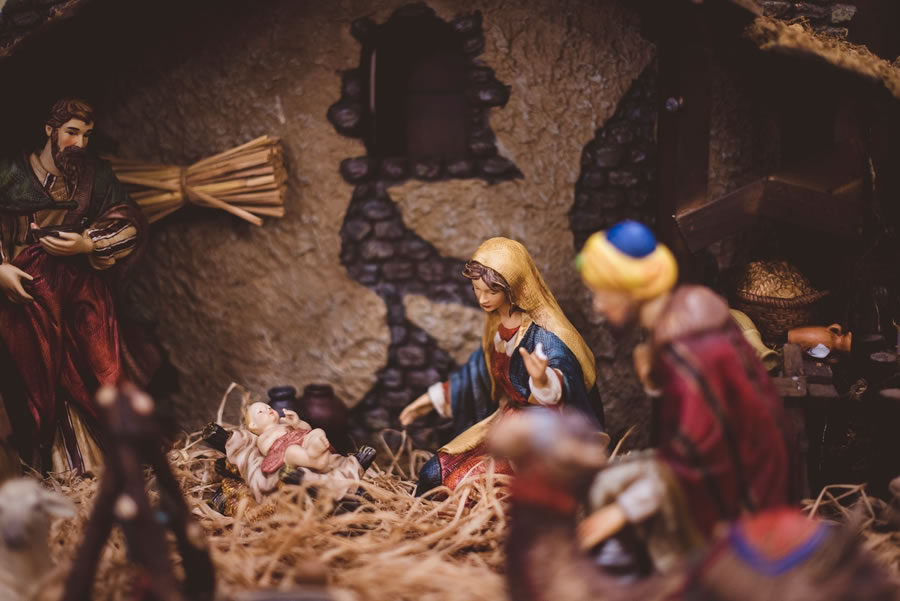
Family
12-26-2021Weekly ReflectionJen Arnold, M.A. in Theology and CatecheticsToday we celebrate the Feast of the Holy Family, making it a good time to discuss exactly why God created the institution of the family and what is intended in family life.
We can go first to the Catechism and dive right into what the Church teaches about the purpose of the family.
The Christian family is a communion of persons, a sign and image of the communion of the Father and the Son in the Holy Spirit. In the procreation and education of children it reflects the Father’s work of creation. It is called to partake of the prayer and sacrifice of Christ. Daily prayer and the reading of the Word of God strengthen it in charity. The Christian family has an evangelizing and missionary task. (CCC #2205)
READ MORE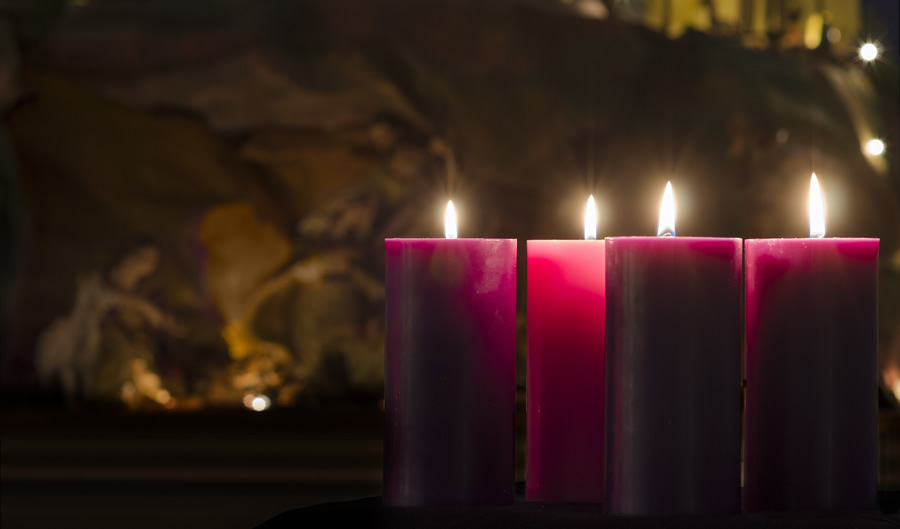
The "O Antiphons" and the Twelve Days of Christmas
12-19-2021Weekly ReflectionJen Arnold, M.A. in Theology and CatecheticsWe have now reached the final Sunday of Advent and Christmas will be upon us shortly. The Catholic Church loves celebrations and has designated several days before and after Christmas for special periods of preparation and celebration.
READ MORE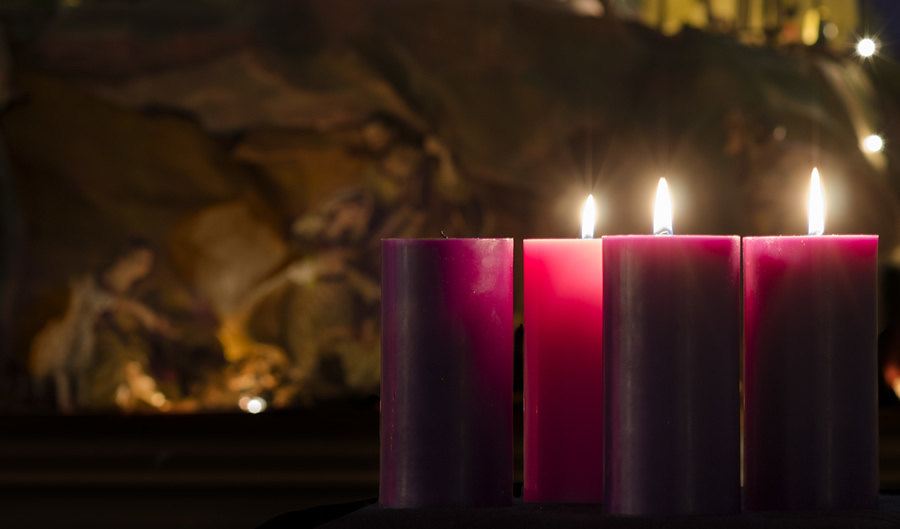
Creches and Advent Calendars
12-12-2021Weekly ReflectionJen Arnold, M.A. in Theology and CatecheticsContinuing our journey through Advent, we’ll look at some of the tangible items we use to help enrich our experience throughout the season.
Let’s begin with the Christmas Crèche, or Nativity scene. The creation of the crèche is attributed to St. Francis of Assisi in 1223. At the time, St. Francis was a deacon and was visiting a small town to celebrate Christmas. The chapel where Mass was to be held was too small to hold all of the people in the town, so he wanted to create a scene outside as a visual tool to help the people celebrate the birth of Christ. In order to avoid accusations of making a mockery of the event or making too light of it, St. Francis went to Pope Honorius III to obtain approval from the head of the Church for his plan, which the Pope gave.
READ MORE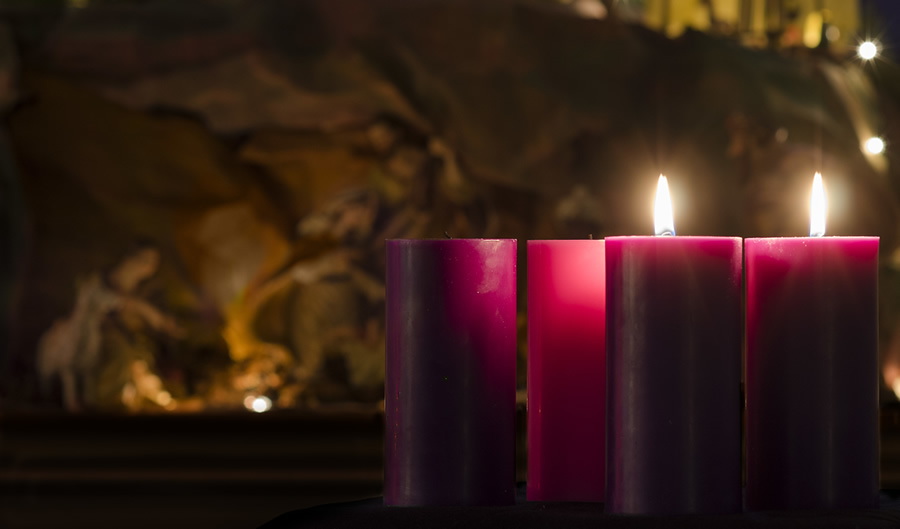
Advent Feast Days
12-05-2021Weekly ReflectionJen Arnold, M.A. in Theology and CatecheticsAs we continue our prayerful journey through Advent, this week we’ll examine the various feast days the Church has given us during the season to help enrich our anticipation of the coming of Jesus.
READ MORE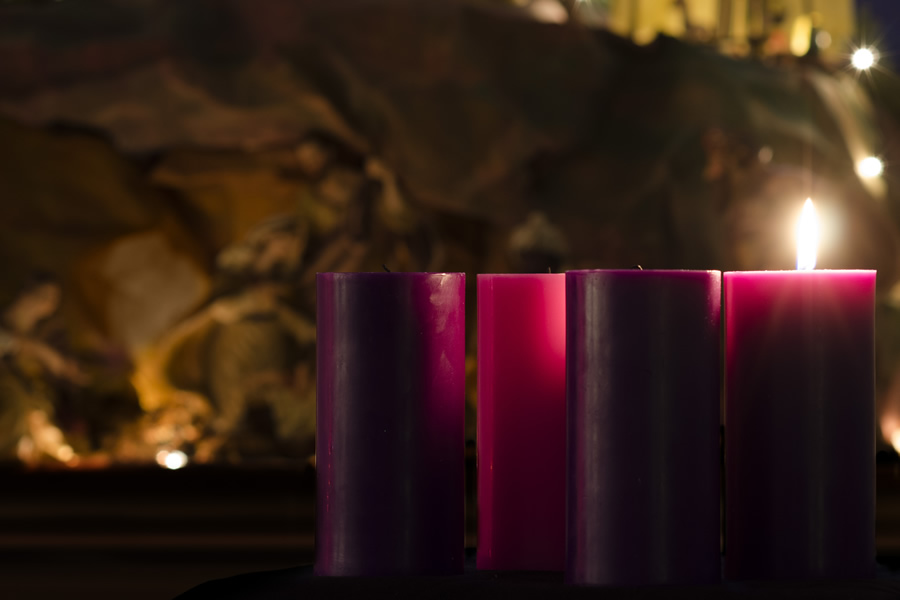
Advent Symbols
11-28-2021Weekly ReflectionJen Arnold, M.A. in Theology and CatecheticsAs we enter into the season of Advent, where we patiently and prayerfully await the coming of the newborn king, we will look at some of the traditions and customs we use to celebrate the season. Humans are physical beings and therefore use interactions with the physical world around them to communicate spiritual realities. We use the totality of our human expression through our five senses to relate to the world around us, as well as relating to God. This is why the Catholic Church uses things like music, art, water, oil, incense, gestures, postures, and candles — because God is the author of all creation and using His creation enriches our understanding of Him and how we relate to Him.
READ MORE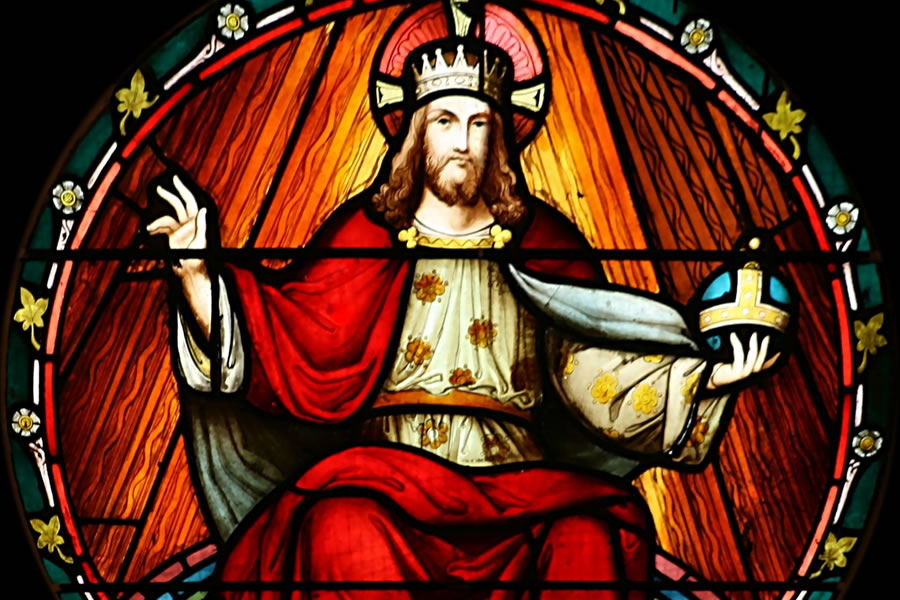
Wrap up Your Gift
11-21-2021Weekly ReflectionKathleen Foley, Director of Mission AdvancementToday is Stewardship Renewal Sunday. Time to wrap it all up and go forth with faith, hope, and charity! The articles for the past four weeks have focused on different aspects of Praying, Serving, and Giving.
First, we considered the giving nature of God in the famous scripture verse, John 3:16:
For God so loved the world that he gave his only Son, so that everyone who believes in him might not perish but might have eternal life.
As we are made in the image and likeness of God, this means we are designed to be givers too. The joy of giving increases when we give intentionally: planning ahead and making a commitment.
READ MORE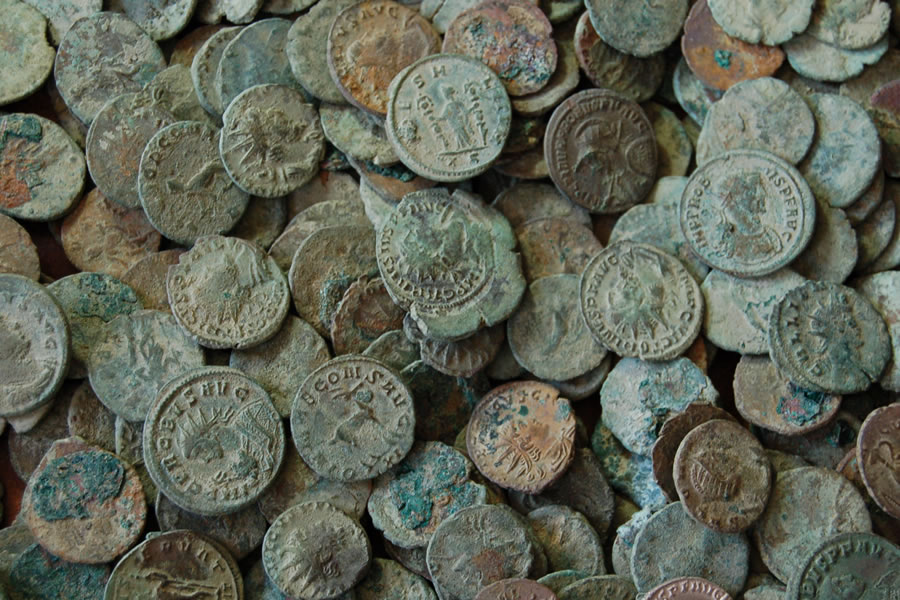
Giving from Our Blessings
11-14-2021Weekly ReflectionKathleen Foley, Director of Mission AdvancementAh… The Widow’s Two Coins. Last week’s Gospel reading is the story that epitomizes what I call, “the giving guilt trip”! Maybe it’s just me and how I’ve heard this story in the past, but I have always been a bit skeptical of this widow being able to part with her only money. As a single mom in my early twenties, I would complain to God that He couldn’t possibly mean I should give all my money to the church! My literal understanding of this story caused me to dismiss its potential application to me and my life. Unfortunately, I didn’t realize that the Bible has various levels of interpretation: literal, moral, allegorical, and anagogical. The fancy word for this is hermeneutics – but that’s for another article.
READ MORE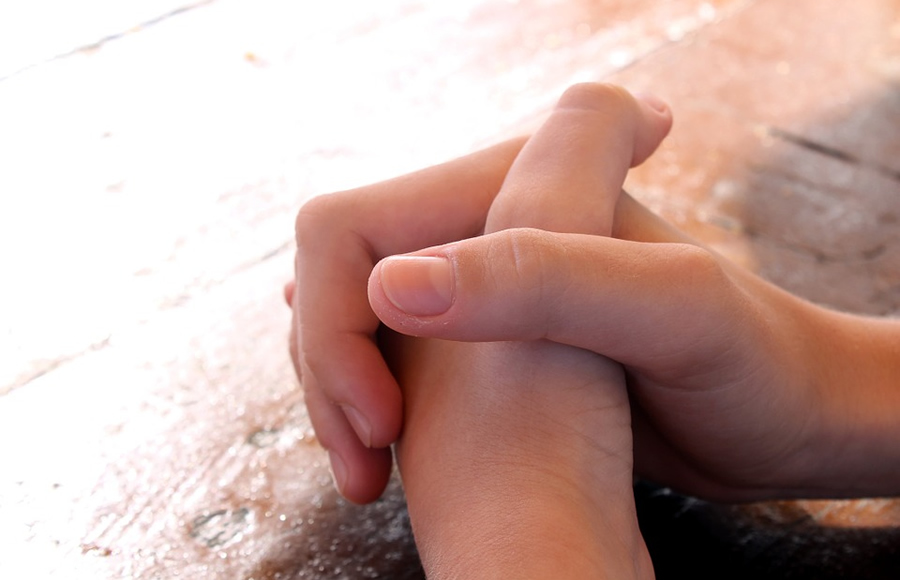
The Keys of Stewardship
11-07-2021Weekly ReflectionKathleen Foley, Director of Mission AdvancementOur Annual Stewardship Renewal process is a wonderful opportunity for us to review where we have been and where we are going. Last week, our bulletin included our annual financial report and highlights. This report is our way of providing a clear picture of the financial health of our parish. It’s been a crazy couple of years for so many of our parish families, as we have endured the pandemic and the uncertainty that came with it. As always, we are grateful for your continued generosity in giving from your blessings.
READ MORE